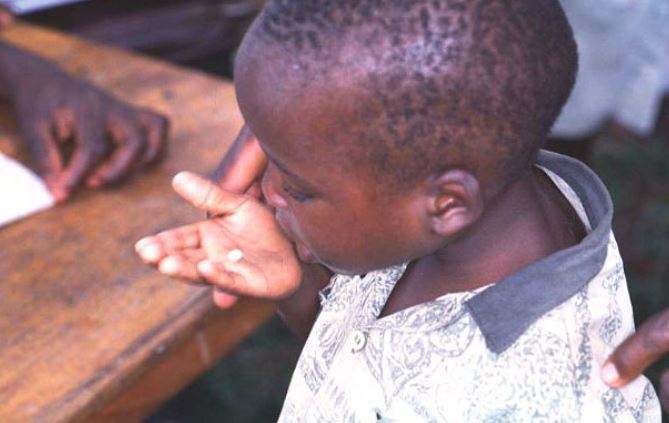The Neglected Tropical Diseases (NTDs) Programme of the Ghana Health Service (GHS) will from August 23 to September 6, 2021, begin a Mass Drug Administration (MDA) for onchocerciasis in endemic regions in the country.
The exercise will be carried out in 66 districts across 13 regions as part of efforts to eliminate onchocerciasis from Ghana.
Children less than five years old, pregnant mothers, and seriously ill inhabitants in some endemic districts will be exempted from the exercise.
In Ghana, MDA is done twice in a year to ensure that every eligible person living in a defined geographical area, regardless of whether or not they are infected receives a single dose of the ivermectin drug.
The ivermectin medication have been used to control onchocerciasis and currently, it is being used to ensure the elimination of the disease from those infected and uninfected.
The GHS has indicated that the MDA, which has been implemented over several years, can significantly control and eliminate the burden of onchocerciasis.
Currently, 137 districts remain endemic for onchocerciasis in Ghana and the Ashanti region has the highest number of endemic districts.
Onchocerciasis is an infection caused by a parasitic worm called Onchocerca volvulus. It spreads by the bite of an infected blackfly known scientifically as Simulium.
It is also called river blindness because the blackfly that transmits the infection breeds in rapidly flowing rivers and streams and bites people living in settlements nearby and causes them to go blind.
Persons with heavy infections as a result of repeated bites by infected blackflies usually develop conditions such as unrelenting itching, unsightly skin disease, nodules under the skin, or eye disease which results in severe visual impairment and blindness.
The control of onchocerciasis in Ghana has been very successful, with an average high infection level of 69.13 percent in 1975, decreasing significantly to a very low level of 0.72 percent in 2015.
The most at risk of onchocerciasis are people who live or work near rapidly flowing streams or rivers where there are Simulium blackfly breeding sites.
Latest Stories
-
Wontumi’s EOCO arrest and detention violates constitution – Hassan Tampuli
13 minutes -
Weakening Dollar: An Opportunity for Developing Economies to Grow
39 minutes -
Livestream: Newsfile discussing Wontumi’s detention, CJ removal case
1 hour -
One Million Coders’ Programme to train youth in AI, Cybersecurity – Omane Boamah to LSE Forum
1 hour -
Africa stands at a crossroads of possibility – Dr Omane Boamah tells LSE Forum
2 hours -
Operations at Maaha Beach Resort remain unaffected in spite of devastating fire incident
2 hours -
Africa must shape its future; not sit on the sidelines – Omane Boamah tells LSE Forum
2 hours -
I’ll stay out of the politics and theatrics – Wontumi’s lawyer
2 hours -
Augusco beats Mfantsipim to clinch Central Region Table Tennis trophy
3 hours -
Liverpool sign Jeremie Frimpong from Leverkusen for £29.5m
3 hours -
UN Peacekeeper Day: Championing Partnership, Shaping a Peaceful Future
4 hours -
Parliament approves GHS10 billion for National Health Insurance Authority
5 hours -
Mentally challenged person beheads man in Tema
5 hours -
Ghana Digital Centres Limited hosts successful Tech Startup workshop
5 hours -
Ghanaian Policeman secures podium finish at global INTERPOL cyber warfare competition
5 hours

